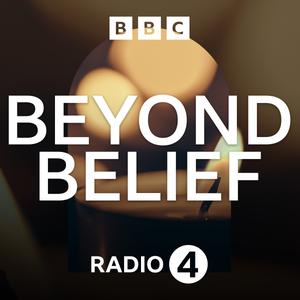
Beyond Belief
BBC Radio 4
Series exploring the place and nature of faith in today's world
- 27 minutes 33 secondsPharisees: a byword for hypocrisy?
The word hypocrite gets used with such regularity – and Jesus himself had form using the term.
How did the Pharisees became a byword for hypocrisy and is it fair? Was Jesus wrong about the Pharisees? Is the view of the Pharisees changing?
To discuss Giles Fraser is joined by Amy-Jill Levine, Professor of New Testament Studies Emerita at Vanderbilt University and co-author of ‘The Pharisees’, James Alison a Catholic Theologian and Dr Stephen de Wijze, a philosopher and Senior Lecturer in Political Theory at Manchester University.
Producer: Alexa Good Assistant Producer: Linda Walker Editor: Tim Pemberton
14 January 2025, 4:00 pm - 27 minutes 20 secondsDivine Comedy
Faith based comedy is growing in popularity. Why is religion such a good source for jokes? Is God funny? And, is there anywhere with religion that you just don’t go?
Dillon Mapletoft, the writer and creator of hit comedy Everyone Else Burns, explains his fundamentalist Christian upbringing and the influence it had on him writing the coming-of-age sitcom about a Manchester family who are part of a puritanical Christian sect and doomsday cult.
To explore Giles Fraser is joined by Shazia Mirza, comedian and part of a female only Halal comedy tour, Shanny Luft, Associate Professor of Religious Studies at the University of Winconsin, and Ashley Blaker, a Jewish comedian and writer once described as "the UK's only Orthodox comedian".
Producer: Alexa Good Assistant Producer: Linda Walker Editor: Tim Pemberton
7 January 2025, 4:00 pm - 27 minutes 29 secondsThe Religion of Detection
Giles Fraser and guests hear from authors of detective fiction, Kate Charles and Martin Edwards, on the subtle ways they weave faith into the crime puzzles in their novels.
Why is religious detective fiction so popular in our increasingly secular society? Did the detective replace the priest as the one who looked into the mysteries of life and battled with good and evil? Why do religion and detective fiction share so many noble pursuits in common? And, what is it about the detective genre that lends itself to such deep ethical and spiritual questions?
To explore Giles is joined by:
James Runcie, author of numerous books, including The Grantchester Mysteries, a series of six detective novels featuring the clerical detective Sidney Chambers. He is a Fellow of the Royal Society of Literature and a member of both the Crime Writer’s Association and The Detection Club.
Ausma Khan, author of the Blackwater Falls crime series and the founder of the Muslim Writers Index.
Dror Mishani the author of the Avraham Avraham detective series that has been turned into a TV series by David E. Kelley. He is a literary scholar, specialising in the history of crime fiction, and the head of the creative writing program at Tel Aviv University.
Producer: Alexa Good Assistant Producer: Linda Walker Editor: Tim Pemberton
31 December 2024, 3:30 pm - 27 minutes 33 secondsBlue Christmas
Mona Siddiqui and guests hear from Rev Denzil Larbi. He reflects on his cousin, Elianne Andam, who was 15 when she was fatally stabbed at a bus stop in Croydon, South London, in September 2023. He discusses their Christmases together and how the family mark Christmas without her.
The panel of guests explore the complexities that often come with religious festivals especially those that come with an expectation of jollity.
Do religions do enough for those who are grieving or isolated at times of collective merriment? Should religious leaders and communities be more responsible and nuanced in their approach? And, are some religions better at dealing with grief than others?
To discuss Mona is joined by Jasvir Singh, from the Department of Theology and Religion at Birmingham University, Chair of City Sikhs, and the founder and Chair of the British Sikh Report, the Revd Lucy Winkett, Rector of St James's, Piccadilly, and Priest-in-Charge of St Pancras's Church, Euston Road, and Remona Aly, British Muslim journalist, commentator and broadcaster with a focus on faith, identity and lifestyle.
Producer: Alexa Good Assistant Producer: Linda Walker Editor: Tim Pemberton
24 December 2024, 5:00 pm - 27 minutes 19 secondsDo our pets go to heaven?
The Rev Tara Hellings, an Anglican vicar, outlines her experiences of conducting funerals at a Pet Crematorium in Winchfield, and Nurul Ain Abdul Hamid, a Muslim who runs a dog and cat shelter in Malaysia, shares her beliefs on the equality of all animals.
Do animals have souls? Are all animals equal? And, how do these concepts feed into religious teachings about animals in the afterlife?
To discuss, Giles is joined by Anuradha Dooney, a Fellow of the Oxford Centre Hindu Studies, Fr Terry Martin, a vegan and Catholic priest, and author of the new book 'Animals in Heaven?' and Joyce D'Silva, Compassion in World Farming's Ambassador Emeritus and the author of ‘Animal Welfare in World Religion: Teaching and Practice’.
Producer: Alexa Good Assistant Producer: Linda Walker Editor: Chloe Walker
17 December 2024, 4:00 pm - 27 minutes 41 secondsArmour of God
Imam Asim Hafiz, the first Muslim chaplain to the British Armed Forces and an Islamic advisor for the Ministry of Defence, who has been working with the armed forces since 2004 discusses the many changes which have seen attitudes towards his role shifting according to the political climate and Mandeep Kaur, who was appointed as the first and only Sikh Chaplain for the entire British Armed Forces, reflects on why the idea of military chaplaincy may seem like a difficult job to take on and the impact of the role within faith communities.
There are approximately 260 regular and 58 reserve chaplains across the armed forces. They serve personnel dealing with the pressures of being away from home, working in hostile environments and dealing with life and death decisions. How has the service evolved to support the broad range of beliefs represented in the armed forces? And how can religious belief really be balanced with the very real possibility of military action leading to loss of life?
To discuss Giles is joined by Roger Hutton, President of Defence Humanists and former Ministry of Defence Director International Security, Dr. Sunil Kariyakarawana, the first Buddhist Chaplain to the British Armed Forces, and the Revd Joanna Jepson, an Anglican priest and a Chaplain to the British Army.
Producers: Alexa Good and Linda Walker Editors: Tim Pemberton and Chloe Walker
12 December 2024, 11:46 am - 27 minutes 39 secondsReligious Freedom
Giles Fraser meets Stephen Schneck, Chair of the U.S. Commission on International Religious Freedom, to explore the impact of globalisation on religious freedom.
Restrictions on religious freedom are increasing. What impact has the spread of religious traditions had on freedom of belief? How does the secularisation of religion contribute? Should states be forced to adopt norms of religious rights and freedoms to meet international pressure? And what can be done about the perceived threat communities feel when they are exposed to other religions?
To discuss Giles is joined by HRH Prince Khalid bin Bandar Al Saud, Saudi Arabia's Ambassador to the UK, Dr Nazila Ghanea, an Iranian-born Professor in International Human Rights Law at the University of Oxford and UN Special Rapporteur on freedom of religion or belief, and, Juan Sebastián Chamorro, an exiled Nicaraguan politician and economist.
Producer: Alexa Good Assistant Producer: Linda Walker Editors: Chloe Walker
5 December 2024, 1:38 pm - 27 minutes 49 secondsThe Gift of the Garden
In her poem 'God's Garden', Dorothy Frances Gurney writes:
'One is nearer God’s heart in a garden Than anywhere else on earth.’
Join Giles Fraser and a panel of green-fingered guests as they gather together at the Aga Khan Centre in Kings Cross to reflect on the theological significance of gardens and gardening.
From Eden and Gethsemane, to the ancient Islamic gardens of Andalusia, to the Japanese Gardens of Zen Buddhism; temples to churchyards, these sacred zones have been places of solace and reflection for millennia; places of life and death, of peace and tranquillity. Here, even non-religious gardeners find common ground with their religious counterparts: on their knees, often in silence, hands in the earth. For many, gardening is the answer. We hear from Jill Smith - lay minister and trustee of 'The Quiet Garden Movement', who tells us how her garden is a place of healing.
Our panellists are Dr Omar Ali de Unzaga - Head of Ismaili Studies at the Aga Khan Centre, Revd Lucy Winkett - Rector at St James' Church in Piccadilly, and Ai Hishii - Director of Japanese garden architects, Momiji Design.
*You can visit the Islamic Gardens at the Aga Khan Centre for free - book online.
Presenter: Giles Fraser Producers: James Leesley and Bara'atu Ibrahim Editor: Tim Pemberton
20 August 2024, 3:00 pm - 27 minutes 36 secondsReligion in the therapy room
Giles Fraser explores the parallels and overlaps between spirituality/religion and psychotherapy.
Professor Josh Cohen is a psychotherapist, who believes that God can be a problematic figure in the therapy room.
Joining the discussion with Giles is Dr Jeremy Holmes, British Psychiatrist and author of -The Spirit of Psychotherapy- which examines the parallels, contrasts, and overlaps between the secular world of psychotherapy and the realm of spirituality. Dr Rania Awaad; Stanford University Professor, Psychiatry, Islamic Law & Theology. And Canon Leanne Roberts; Church of England priest and psychotherapist (Jungian) Dean of Clergy well-being for the Diocese of Southwark.
In 2023 the NHS recorded 1.76 million referrals to their talking therapies programme in England. The British Association of Counselling and Psychotherapy say their membership has risen by 27% since 2020. However, you can now access services from therapists within Christianity, Hinduism, Islam, Buddhism and many more of the faiths.
Can therapeutic models replace religion as a way of exploring and understanding our inner worlds? Is religion an awkward spectre in a therapy room? What’s the difference between religion as something dealt with dispassionately and a therapist who bills themselves as a religious psychotherapist ?
Producer: Rebecca Maxted & Bara'atu Ibrahim Assistant Producer: James Leesley Editor: Tim Pemberton
13 August 2024, 3:00 pm - 27 minutes 28 secondsA Suffering God
Giles Fraser hears about the revolutionary ideas of late theologian Jürgen Moltmann, whose work challenged and transformed Christian ideas of God in the twentieth century.
Hamburg, July 1943. The combined might of the Allies rains bombs down on the city causing a catastrophic firestorm. A young German anti-aircraft bomber cries out to God in the midst of devastation. He would go on to be one of the most important Christian theologians of the twentieth century.
Giles Fraser recounts how he first started to develop his ideas at a Prisoner of War camp in Scotland after the Second World War. His books, including The Theology of Hope and The Crucified God would go on to be seminal works for those studying Christianity, but would also have far-reaching influence. He also wrote about liberating those oppressed, ecology and the environment and feminism.
Joining Giles to discuss why his work matters is Professor Miroslav Volf, Director of the Yale Ceter for Faith and Culture, who knew Moltmann as a PHD supervisor and friend. Also on the panel are Professor Candida Moss and Professor Celia Deane-Drummond.
Does God suffer, as we suffer and what difference does this make to faith and belief?
Producer: Rebecca Maxted Assistant Producer: James Leesley Editor: Tim Pemberton
6 August 2024, 3:00 pm - 27 minutes 50 secondsWine of the Gods
Giles Fraser explores the place of wine in some religious traditions, as the blood of Christ, the nectar of the Greek Gods or Persian poets, to something forbidden or proscribed.
We start on a balmy evening in Napa Valley, with a sea breeze blowing through the vines at Marinda Kruger's vineyard. For her, life as a viticulturalist has an intimate connection to her faith.
Gisela H Kreglinger, theologian from a wine-making family, Catholic Priest, Father Marc Lyden-Smith and Muhammad Ali Mojaradi, translator of the Persian Sufi poets under the moniker Persian Poetics on social media, join Giles to consider the pleasures and prohibition of wine.
Many scriptures and religious poetry are awash with the stuff. Wine flows in heaven, goblets elicit a kind of spiritual ecstasy and Noah's first act after the flood? To plant a vineyard. What has been wine's significance in different religious traditions, and what does our relationship to it reveal about our earthly selves?
Producer: Rebecca Maxted Assistant Producer: James Leesley Editor: Tim Pemberton
This programme includes a short clip of Silvestre Le Trouzel reading from Babette's Feast, recorded for BBC Radio 4's Bedtime Stories and first broadcast in 2016. Produced by Eilidh McCreadie.
30 July 2024, 3:00 pm - More Episodes? Get the App
Your feedback is valuable to us. Should you encounter any bugs, glitches, lack of functionality or other problems, please email us on [email protected] or join Moon.FM Telegram Group where you can talk directly to the dev team who are happy to answer any queries.
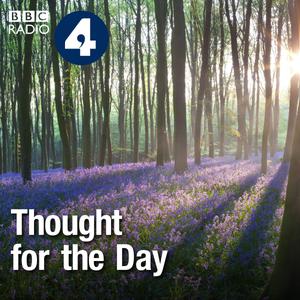 Thought for the Day
Thought for the Day
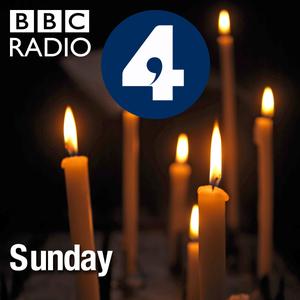 Sunday
Sunday
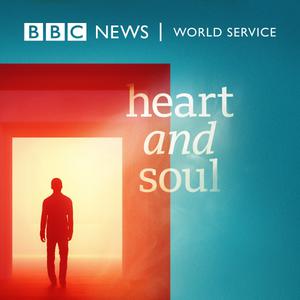 Heart and Soul
Heart and Soul
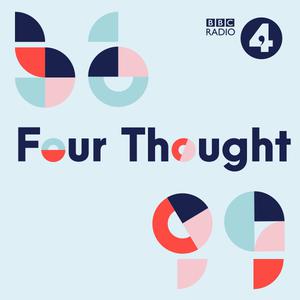 Four Thought
Four Thought
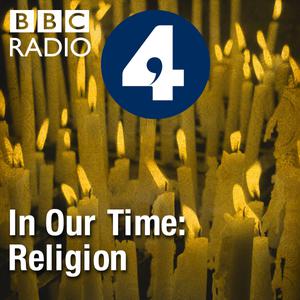 In Our Time: Religion
In Our Time: Religion